When reduceByKey is called it sums all values with same key. Is there any way to calculate the average of values for each key ?
// I calculate the sum like this and don't know how to calculate the avg
reduceByKey((x,y)=>(x+y)).collect
Array(((Type1,1),4.0), ((Type1,1),9.2), ((Type1,2),8), ((Type1,2),4.5), ((Type1,3),3.5),
((Type1,3),5.0), ((Type2,1),4.6), ((Type2,1),4), ((Type2,1),10), ((Type2,1),4.3))
